The major product obtained in the reaction of toluene with 1 - bromo-2-methyl propane in the presence of anhydrous is
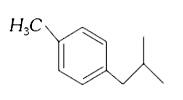
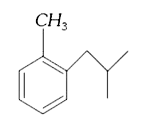
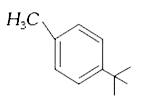

The correct Answer is:C
To determine the major product obtained from the reaction of toluene with 1-bromo-2-methylpropane in the presence of anhydrous AlCl3, we can follow these steps:
Step 1: Identify the Reactants
- Toluene (C6H5CH3) is the aromatic compound that will undergo electrophilic substitution.
- 1-bromo-2-methylpropane (C5H11Br) is the alkyl halide that will provide the alkyl group.
Step 2: Understand the Role of AlCl3
- Anhydrous AlCl3 acts as a Lewis acid and helps in generating a more reactive electrophile from the alkyl halide. In this case, it will facilitate the formation of a carbocation from 1-bromo-2-methylpropane.
Step 3: Carbocation Formation
- The reaction of 1-bromo-2-methylpropane with AlCl3 leads to the formation of a carbocation. The most stable carbocation that can be formed from 1-bromo-2-methylpropane is the tertiary carbocation, which is formed by the loss of bromide ion (Br-) and the rearrangement of the molecule.
Step 4: Electrophilic Substitution
- The generated carbocation will then act as an electrophile and will react with the toluene. The electrophilic substitution will occur at the ortho or para position of the aromatic ring due to the electron-donating effect of the methyl group in toluene.
Step 5: Determine the Major Product
- In this reaction, the major product will be the one formed at the para position due to steric hindrance at the ortho position. Therefore, the major product will be para-alkylated toluene.
Final Product
- The major product obtained from the reaction is para-isopropyltoluene (C6H4(CH(CH3)2)CH3).
Summary
The major product obtained in the reaction of toluene with 1-bromo-2-methylpropane in the presence of anhydrous AlCl3 is para-isopropyltoluene.
---
- Toluene (C6H5CH3) is the aromatic compound that will undergo electrophilic substitution.
- 1-bromo-2-methylpropane (C5H11Br) is the alkyl halide that will provide the alkyl group.
- Anhydrous AlCl3 acts as a Lewis acid and helps in generating a more reactive electrophile from the alkyl halide. In this case, it will facilitate the formation of a carbocation from 1-bromo-2-methylpropane.
- The reaction of 1-bromo-2-methylpropane with AlCl3 leads to the formation of a carbocation. The most stable carbocation that can be formed from 1-bromo-2-methylpropane is the tertiary carbocation, which is formed by the loss of bromide ion (Br-) and the rearrangement of the molecule.
- The generated carbocation will then act as an electrophile and will react with the toluene. The electrophilic substitution will occur at the ortho or para position of the aromatic ring due to the electron-donating effect of the methyl group in toluene.
- In this reaction, the major product will be the one formed at the para position due to steric hindrance at the ortho position. Therefore, the major product will be para-alkylated toluene.
- The major product obtained from the reaction is para-isopropyltoluene (C6H4(CH(CH3)2)CH3).
The major product obtained in the reaction of toluene with 1-bromo-2-methylpropane in the presence of anhydrous AlCl3 is para-isopropyltoluene.
Topper's Solved these Questions
- BOOK - ERRORLESSCHAPTER - HYDROCARBONSEXERCISE - PAST YEAR QUESTIONS88videos
HYDROCARBONS
- BOOK - ERRORLESSCHAPTER - HYDROCARBONSEXERCISE - ASSERTION & REASON18videos
HYDROCARBONS
- BOOK - ERRORLESSCHAPTER - HYDROCARBONSEXERCISE - NCERT BASED QUESTION (ALKYNE)67videos
HYDROCARBONS
- BOOK - ERRORLESSCHAPTER - GENERAL ORGANIC CHEMISTRY EXERCISE - ASSERTION AND REASON14videos
GENERAL ORGANIC CHEMISTRY
- BOOK - ERRORLESSCHAPTER - HYDROGENEXERCISE - ASSERTION & REASON6videos
HYDROGEN
Similar Questions
Name the electrophile produced in the reaction of benzene with benzoyl chloride in the presence of anhydrous AlCl3. Name the reaction also.
View SolutionName the electrophile produced in the reaction of benzene with benzoyl chloride in the presence of anhydrous AlCl3. Name the reaction also.
View Solution
Knowledge Check
- Question 1 - Select One
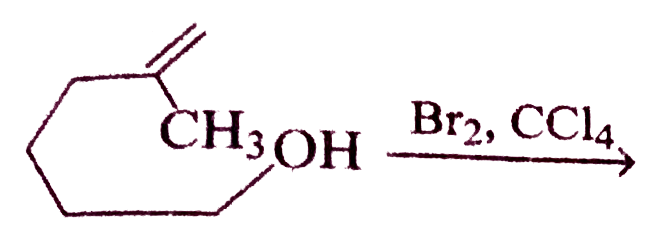
The major product obtained in this reaction is:A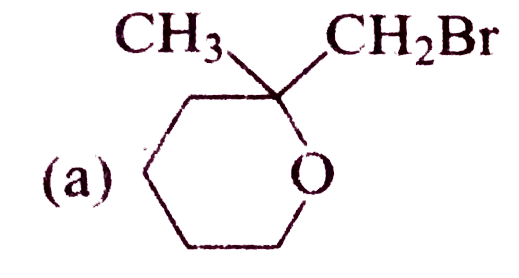 B
B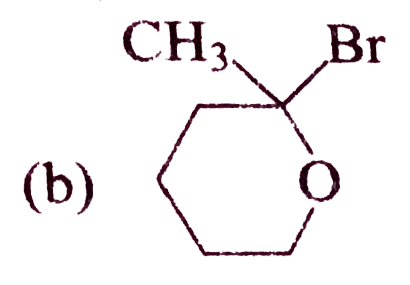 C
C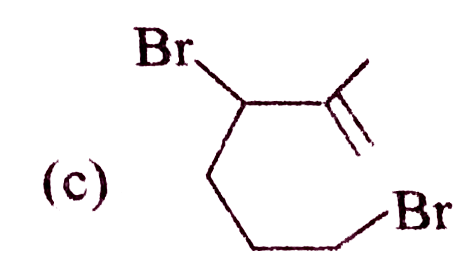 D
D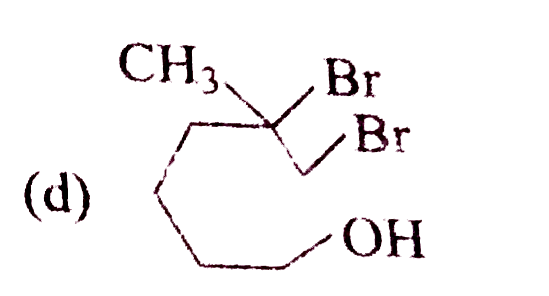
- Question 2 - Select One
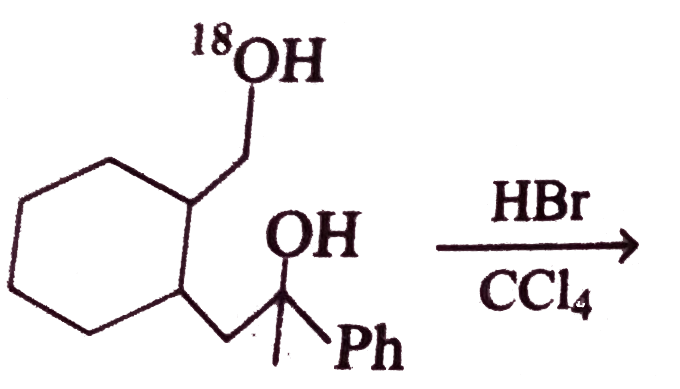
Major product obtained in this reaction is:A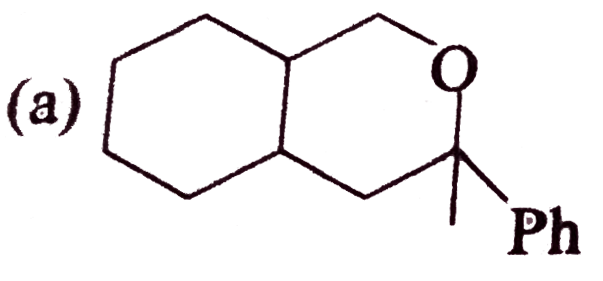 B
B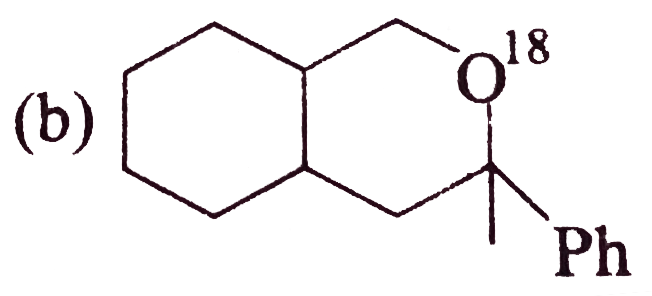 C
C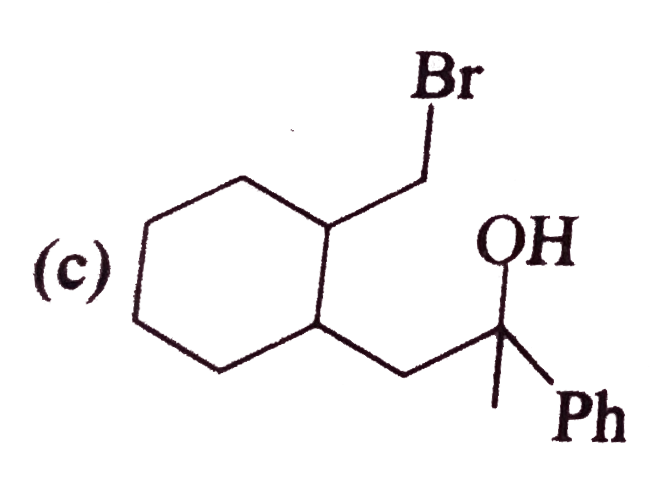 D
D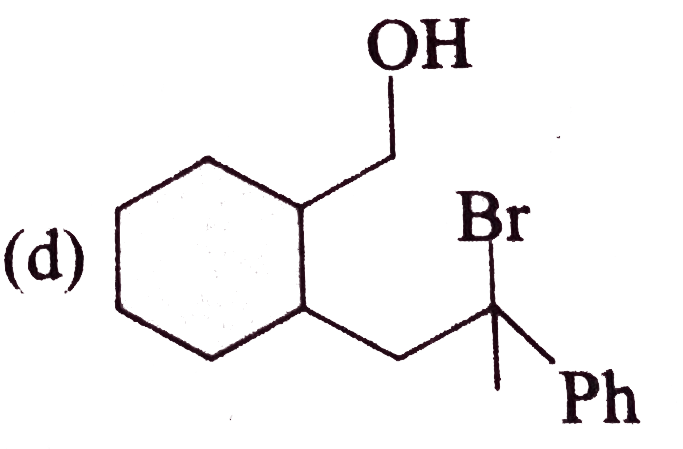
- Question 3 - Select One
The major products formed in the reaction of toluene with chlorine in the presence of ferric chloride are :
Ao-chlorotolueneBm-chlorotolueneCp-chlorotolueneDbenzyl chloride
The major product obtained by the addition reaction of HBr to 4-methylpent-1-ene in the presence of peroxide is:
View SolutionThe major product obtained by the addition reaction of HBr to 4-methylpent-1-ene in the presence of peroxide is:
View SolutionWhich one of the following represents the major product of the reaction of benzene with 2,2-dimethylpropyl chloride in presence of anhydrous aluminium chloride ?
View SolutionWhich one of the following represents the major product of the reaction of benzene with 2,2-dimethylpropyl chloride in presence of anhydrous aluminium chloride ?
View SolutionAnsisole on reaction ith chloromethane in presence of anhydrous AlCl3 gives
View Solution

